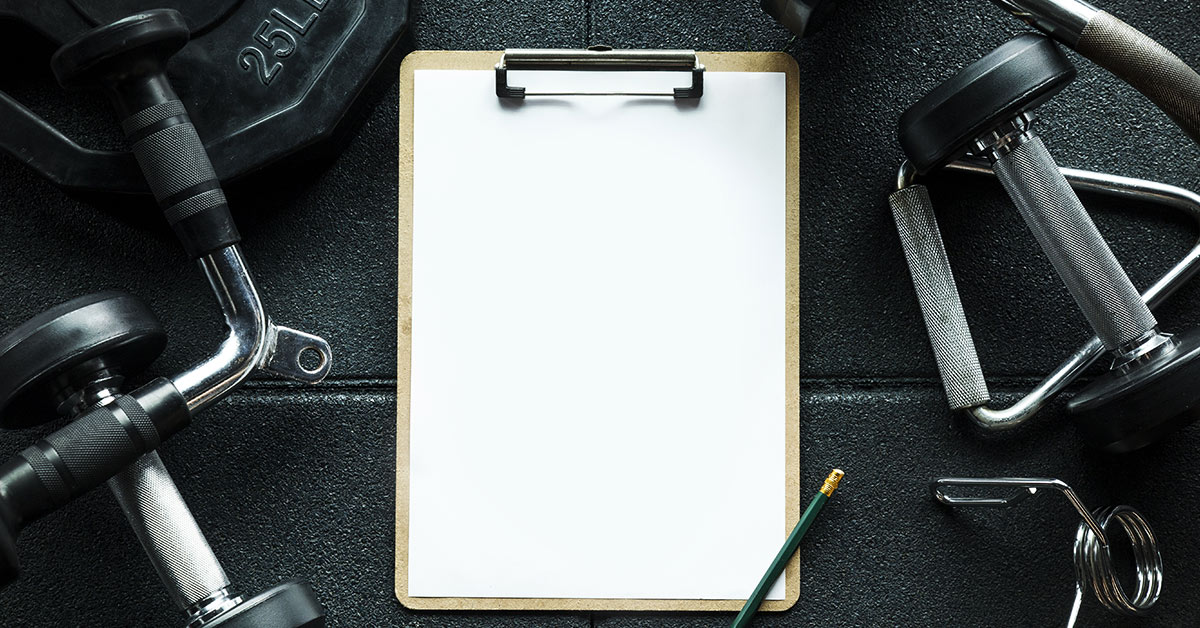BACK TO SCHOOL FOR OPTIMAL PROGRESSION
May 20, 2021The series that we have now started will teach us how we can get more out of our training. This involves a lot of theory and perhaps that it occasionally goes deep into the material ( articles 1 and 2 about the quality of reps). For that reason, we are also going to tackle the practice and you will receive homework from me! In the article training incentive in practice , I gave you homework that made the theory from the first two articles applicable in practice. Back to school for optimal progression! Today we will look at what following these assignments can bring to your training.
BACK TO SCHOOL: THE ASSIGNMENTS
Below we will go through the 5 homework assignments from the previous article. I explain what you could have noticed and why. After reading this article, I would like to ask you to go through the homework assignments again, but now with the knowledge about the how and why. In this way we will see to what extent they can positively influence your life and your performance!
PEACE
Task 1
2 rest days for 2 weeks, not consecutively
2 rest days for 2 weeks, consecutively
An article will be published later about rest and everything that comes with it, from stress to training stimulus. In any case, it is important for now to understand that the length and timing of your rest between sets matters, but also the timing of your rest days. The amount of stress in your life, the amount and quality of your sleep, the amount of nutrition you take in … they all affect to some extent how much exercise volume you can recover. A very important part of this maximum potential recovery is the timing, layout and duration of your rest days. Some people are so stressed that 1 day of rest is not enough for their nervous system to calm down; only their second rest day will really have the positive effects they expect from their rest days. In these cases, 5 days of training, 2 days of rest, is a better approach than, for example, 3 days of training, 1 day of rest, 2 days of training, 1 day of rest. Uninterrupted rest days in a week can certainly make a difference!
WHAT CAN YOU EXPECT?
In addition, on rest days, try to really focus on recovery, not only physically but also mentally. Do something relaxing, even if it’s watching a movie. Take time for your food. These days eat something more extensive and fresher than usual. Grab a power nap. Take a walk in the woods (walk, not sprint; it is a day of rest). You will see that your training has more effect, you are less susceptible to injuries, you recover better, lose weight more easily or build more muscle mass. Rest days are just as important as training days!
PERFORMANCE
Exercise 2
Film your own sets and see how you perform your exercises.
In the previous 2 articles we have dirty enough words about why working neatly is important. But then of course we have to apply this in practice!
It might feel weird to film a few sets or to ask someone if they can film a set. But you can get extremely valuable information from it! Don’t round your back with squat like a dog pooping? Do you create a lot of momentum with a leg extension at the bottom, which effectively puts little strain on your legs? Do you crunch your abs at a lat pulldown instead of using your lats? Are you stable during the bench press and do you keep tension on your pecs, or does the tension drop as soon as you get to the top?
Making mistakes is okay, you can correct them. But then you have to know that you are making them! Do you have a video but find it difficult to see if your performance is neat? Then ask a friend or trainer to rate him? Or tag me in it, I’ll be happy to help you!
WHAT CAN YOU EXPECT?
When the performance of your exercises improves, you will be less susceptible to injuries and train more efficiently. Exercises will actually train the muscles they need to train and the load will be better placed on the desired muscles instead of being distributed over all kinds of structures and muscles that have nothing to do with that exercise.

KILOS
Task 3
Try lowering your weights by 30-40% and squeeeezzeee
This assignment is somewhat related to the previous one; muscles can only shorten actively and preferably over 1 straight line. The direction in which you pull or push therefore determines which muscle does the most work and also whether you lengthen and shorten a muscle over the full range.
By significantly lowering your weights, it is easier to focus on this and you will learn to feel much better when you use a muscle optimally. We don’t want to put all the emphasis on this at the expense of all tax; after all, the training volume remains the guiding principle for progression; but often people only keep putting on their pounds from week to week because it is so in the system that this means progression; however, increasing your weight only means progression when shape remains the same, which actually increases the load on the muscle. Strictly curling 10 kilos may be a lot more efficient and heavier on your biceps than cheat curling 15 kilos.
WHAT CAN YOU EXPECT?
When you have lowered your weights and you have understood the movements, build up with manageable steps. From week to week, try to keep shape even and strict. Keep in mind that even keeping your weights the same as a form that improves from week to week will also train your muscles.
BLASTING
Task 4
Only use your training time for training
As mentioned, this may not be the most pleasant approach, but one that may open a whole new chapter in terms of progression. During a training we have to deal with more things than just popping a set and resting for 2 minutes. All kinds of things happen in the body, not just the muscles themselves. And things happen not only physically, but also mentally. Energy supplies become depleted, stress builds up, your nervous system gets tired, hormone levels change, you start thinking about being able to sit down for a while or all the work that still needs to be done … for these reasons the sets at the start of your training are more efficient and heavier than the one at the end.
In addition to the intensity of a training, we also have to deal with density; the amount of work that can be crammed into a given time frame. If you spend 2 minutes chatting with friends or texting after each set, you will be able to cram a lot less work into an hour than if you timed your rest tightly. In addition, you will never really get into a good focus or ‘the zone’ if you are taken out of your concentration every time. Your training will therefore not be able to reach their potential for a long time. Oh yes: put your phone in airplane mode; just see what peace of mind that gives!
WHAT CAN YOU EXPECT?
When you do this homework assignment, a number of things will happen to your workouts. They get shorter, leaving you more time for other things (for example chilling with friends, possibly in the lobby of the gym after your workout). In addition, training will have less of an impact on your life; not having to take 3 hours for a workout from start to finish, but an hour! Your workouts will become more challenging, because you can go further. In your rest breaks, you focus on the next set, instead of last weekend’s pub story. As a result, your sets will go better. You can concentrate better on your execution, so that tasks 2 and 3 will also go better.

LOG
Task 5
Keep a log of your workouts
We’ve seen it featured in articles a few times now: total volume remains one of the biggest, if not the biggest, components of progression. And no matter how good your memory is, you cannot remember how many sets and reps you do from every workout.
The best way to prevent this is to keep track of your workouts in a notebook or, for example, in the excel app on your phone. This is fine during your rest breaks, when you follow assignment 4. It also immediately gives you some external motivation: Last time I saved 5 reps with 100 kilos, today I want 6! When you see it in black and white it comes across as harder than when it floats somewhere in your mind between all the thoughts about your relationship, work, small calves, errands that still have to be done and weekend plans.
WHAT CAN YOU EXPECT?
When you do this homework assignment you will see that you become more motivated and can make more progress. You know how strong you were last time, after all, it is black and white. No more gambling or having to do everything intuitively.
If you have a bad day, write it down. Can you feel an old injury coming on? Write it down. If you have a few off days in a row or you even see that you are making little or no progress for a few weeks and you do not understand why, then it may be time to take a closer look at assignment 1; perhaps it is time for one (or 2 consecutive!) rest days. In addition, in this way you get very good insight into the effect of adjustments in your training and you can see in black and white what these homework assignments bring you.



